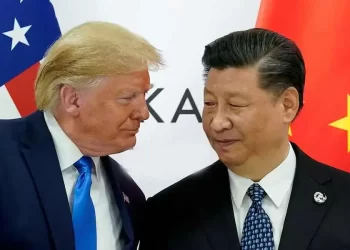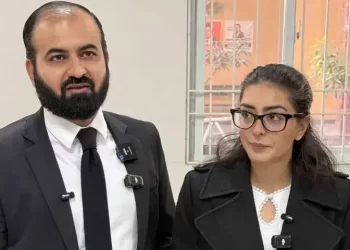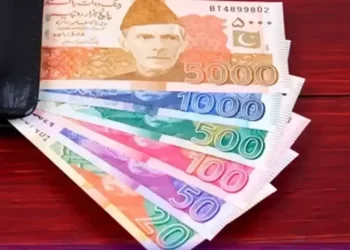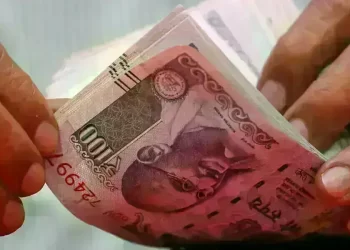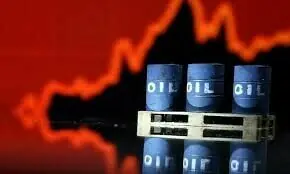DUBAI – Dubai’s Department of Economic Development (Dubai Economy) today announced its latest economic outlook according to which it expects the emirate to record a growth of 3.1 percent this year. Spurred by the hosting of Expo 2020, Dubai’s growth is projected to accelerate to 3.4 percent in 2022.
H.H. Sheikh Hamdan bin Mohammed bin Rashid Al Maktoum, Dubai Crown Prince and Chairman of The Executive Council of Dubai, said: “The bright outlook for growth in the emirate has been made possible by the vision and leadership of His Highness Sheikh Mohammed bin Rashid Al Maktoum, Vice-President and Prime Minister of the UAE and Ruler of Dubai, under whose guidance the government undertook decisive measures to ease the repercussions of global challenges on the economy.” ”These efforts were accompanied by new legislation and amendments to the investment and residence laws in the country. Cumulatively, these moves revitalised the economy and stimulated a strong flow of local and foreign investment, allowing the emirate to resume its journey of development, diversification and sustainable economic growth. Over the coming years, Dubai promises to be an even bigger global destination for investment and talent and a city that offers exciting new opportunities for businesses, entrepreneurs and innovators,” he added.
Following the leadership’s directives, DED made concerted efforts to mitigate the pandemic’s impact on businesses, especially by facilitating transaction procedures and commercial licenses. The Department continues to adopt best practices and high-quality standards in its quest to make Dubai the world’s leading smart city. DED’s active engagement and open communication lines with the business community and society at large have ensured the design and implementation of the best precautionary and practical measures, and safety rules that guarantee both public safety and smooth operations.
Commenting on the latest economic outlook figures, Sami Al Qamzi, Director General of Dubai Economy, said, “Dubai’s latest economic indicators show that the precautionary measures, comprehensive vaccination campaigns, stimulus packages, and legislative amendments that the UAE and Dubai have adopted were right on target. Dubai’s economy is now firmly on the recovery path and supported by increasing business and consumer confidence. This includes in particular business activities that were most negatively impacted by the pandemic such as tourism and transport. Under the guidance of His Highness Sheikh Mohammed bin Rashid Al Maktoum, Vice President and Prime Minister of the UAE and Ruler of Dubai, and follow-up of H.H. Sheikh Hamdan bin Mohammed bin Rashid Al Maktoum, Crown Prince and Chairman of The Executive Council of Dubai, the Emirate has resumed its development journey guided by a comprehensive and ambitious strategic vision that seeks to enhance domestic demand and exports, open new markets, and attract investors and talent.”
In the year 2020, Dubai’s actual output was below its existing production capacity similarly to elsewhere in the world. Confinement measures weighed on both supply and demand that jointly led to a significant decline in economic activity, including in Dubai, despite the significant support provided by the government to firms in all sectors.
Al Qamzi recalled the five consecutive stimulus packages that the Government of Dubai has launched during the period from March 2020 to September 2021, which contained a number of support measures, such as the suspension and reduction of various fees, reduction of customs duties, water and electricity bills, postponing rent payment, and canceling fines. The total financial cost of the five packages amounted to AED7.1 billion, or 1.6 percent of Dubai’s GDP. These packages came on top of economic support measures launched by the UAE Federal Government, including the ‘Targeted Economic Support Scheme’ that the Central Bank of the UAE launched in March 2020 to ease the financial burden on firms and help many of them to avoid bankruptcy.
Al Qamzi noted that despite setbacks to the global economy from pandemic-related developments, Dubai witnessed between September 2020 and July 2021 a relatively faster recovery in sectors such as transport and tourism compared to other countries. Expo 2020 is expected to provide a strong economy-wide boost especially in the transport and tourism sectors.
Taking account of recent developments and future prospects and risks during the period ahead, DED forecasts Dubai GDP to grow by 3.1 percent in 2021, given the significant recovery beginning in Q2, particularly in the activities that witnessed an almost complete shutdown in April and May 2020. The forecast also takes into account the expected positive impact of Expo 2020 on economic activities.
It is also expected that the accommodation and food services sector will grow by 8.5 percent in 2021, compared to 2020, and transport, storage and communications by 4.1 percent, reflecting the gradual recovery expected until the end of 2021 in tourism and transport activities. The wholesale and retail trade sector is also expected to regain a large part of its activity following the COVID-19-induced slowdown, achieving a growth of 4.7 percent in 2021, while construction activity is likely to decline in 2021 by 2 percent as a result of stabilization in the construction of residential, office, and hotel space, and a relative decline in construction related to infrastructure following their rapid growth recorded in the years before 2020.
Al Qamzi pointed out that growth is expected to accelerate in 2022 and reach 3.4 percent, driven by the continuous recovery of activities that were most affected by the pandemic, such as tourism and international transport, which will also benefit from Expo 2020 activities in the first months of 2022.
The economic performance report issued by Dubai Statistics Center indicates that Dubai’s economy achieved a growth of 1% during Q1 2021, compared to Q4 2020, based on preliminary estimates of the seasonally-adjusted GDP data.
This growth is driven by the outstanding performance of the manufacturing sector, the improvement in tourism, transport and storage activities, in addition to the significant growth in the financial sector’s performance for the same period.
Aref Al Muhairi, Executive Director of Dubai Statistics Center, said: “These figures indicate that there is a positive development and rapid recovery of both Dubai’s and the UAE’s economy, compared to 2020, which witnessed major economic declines worldwide, driven by the slowdown in the sectors of tourism, transport and other economic activities. This is a natural consequence of the pandemic on the global economy.”
Al Muhairi explained that Dubai’s economy contracted by -3.7 percent in Q1 2021 compared to Q1 2020. Nonetheless, this contraction points to a positive development in view of the performance back during 2020 when the contraction reached -10.9 percent, compared to 2019.
Al Muhairi indicated that despite the decline in certain activities in Q1 2021, others, especially those of high strategic significance, witnessed strong growth. This is most evident in the trade sector, which contributes close to 24 percent to Dubai’s GDP, whose growth reached 2.8 percent in Q1 2021, compared to the corresponding period in 2020. The trade sector was one of the leading sectors whose contribution to economic activity has lessened the economic impact of COVID-19.
Dubai foreign trade data issued by Dubai Customs indicate that non-oil foreign trade grew in Q1 2021 by 10 percent, reaching AED354.4 billion, compared to AED323 billion in Q1 2020. Exports achieved a significant growth of 25 percent, reaching AED50.5 billion, and the value of imports increased by 9 percent, to reach AED204.8 billion, while the value of re-exports increased by 5.5 percent, to reach AED99 billion.
The financial and insurance activities also achieved a growth rate of 3.5 percent in Q1 2021, compared to Q1 2020, and their contribution to the emirate’s GDP rose to reach 12.8 percent. It is also one of the sectors that contributed to reducing the impact of COVID-19 on economic performance. This performance resulted from the growth of total deposits and loans during Q1 2021, as loans grew by 2.6 percent and deposit balances grew by 3.3 percent, while interest rates on loans decreased by 24 percent and on deposits by 35 percent.
Moreover, activities in the manufacturing industry also witnessed a growth of 3.2 percent, and their contribution to the overall economic performance increased to 9.5 percent. Consequently, it was one of the activities that contributed to reducing the impact of the global economic decline on the emirate’s economy. The activities of the food industry, pharmaceutical products, rubber and plastic products, and base metals manufacturing contributed to the growth of the manufacturing sector positively.
Real estate activities also achieved a growth rate of 2.4 percent during Q1 2021, compared to Q1 2020, contributing to 8.7 percent of the real GDP. Consequently, it was one of the supporting activities to overcome the effects of the global economic decline and its consequences on the Emirate’s economy. The real estate sector in Dubai achieved a significant growth in sales transactions in Q1 2021, compared to Q1 2020 and 2019 before the outbreak of the epidemic. This shows the high resilience of the real estate sector in Dubai and its ability to respond to economic developments and demand volumes.
The Dubai Statistics Center report indicates that during Q1 2021, the COVID-19 pandemic affected the accommodation and food services, transport and storage sectors. Both activities decreased by 25.6 percent, compared to Q1 2020. This decline is considered normal under global economic circumstances, as most countries of the world closed their airports, land and sea crossings to passenger traffic and adopted precautionary measures, causing the reduction of movement of international visitors, and significant negative consequences on tourism movement globally.
While it is expected that Dubai’s economy will be affected by global conditions given its critical role in regional and global trade and airline passenger traffic, it is important to note that the emirate’s flexibility, advanced capabilities and strategic administrative system enabled a rapid and effective response to the crisis and thereby minimised the economic costs of the pandemic, both in absolute terms and compared to many regional and global economies.



